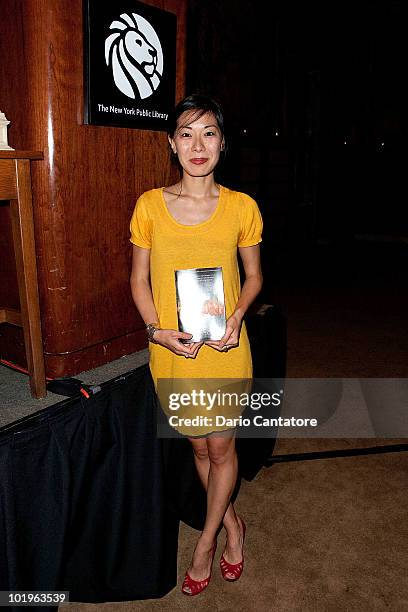The Apple TV+ series “Severance” has garnered much attention since its debut, particularly with the conclusion of its second season, which left fans clamoring for answers. This innovative show dives deep into the lives of office workers who voluntarily split their consciousness into two distinct identities—an “innie” at work and an “outie” in the outside world. By tackling profound themes such as work-life balance and the complexities of identity in media, “Severance” resonates on multiple levels with its audience. Under the direction of Nicky Weinstock, the show has evolved into a cultural phenomenon, captivating viewers as it challenges their perceptions of reality. As speculation builds around “Severance season 3,” many are eager to see how this thought-provoking narrative will continue to unfold.
The intriguing narrative crafted in “Severance” explores the duality of human existence, examining the contrasting worlds of personal and professional life. This thought-provoking series on Apple TV+ has sparked conversations regarding the separation of our identities—an issue that many grapple with in today’s fast-paced society. As we delve deeper into how this split affects our day-to-day interactions and sense of self, the show raises relevant questions about our own work-life dynamics. With each progression of the story, viewers are encouraged to reflect on their experiences while also engaging with the artistic vision presented by its creators, including producer Nicky Weinstock. As discussions intensify surrounding the much-anticipated next installment, audiences are left to ponder the vast implications of living a bifurcated life.
The Innovative Narrative of Severance
The Apple TV+ series “Severance” has revolutionized television storytelling with its innovative narrative that intricately explores the themes of work-life balance and identity. The crux of its genius lies in the bold concept where characters separate their consciousness into distinct personas known as ‘innies’ and ‘outies’. This fascinating premise not only captivates the audience but also serves as a thought-provoking commentary on the duality of human existence. As viewers, we are drawn into the depths of their divided selves, forcing us to reflect on our own identities in a world increasingly dominated by expectations at work and home.
Moreover, the show’s unique structure prompts discussions around free will, as the characters grapple with their choices and the ramifications of their severance. The intricately crafted world reflects our modern reality, where individuals often feel compelled to wear different masks depending on their environment. This duality resonates deeply, especially in today’s fast-paced society where the lines between professional and personal lives become blurrier by the minute. The show’s direct association with the real-life challenges of maintaining a work-life balance makes it a cultural touchstone.
Nicky Weinstock: The Vision Behind Severance
Nicky Weinstock, one of the key players shaping the narrative of “Severance,” provides a unique lens on the show’s production journey. As a Harvard alum and co-producer, Weinstock’s insights illuminate the visionary framework that propelled the show from a speculative script into a cultural phenomenon. His commitment to exploring global narratives helped birth a series that challenges conventional television formulas and engages viewers on multiple levels. Weinstock’s firsthand experience in traversing various cultures enriches the storytelling, making it resonate beyond the confines of Hollywood.
His journey also exemplifies the significance of diverse perspectives in media. Weinstock’s earlier studies in anthropology significantly influenced his approach to storytelling, enabling him to craft narratives that reflect broader human experiences. By harnessing various voices and stories, he contributes to the show’s exploration of identity in media, ultimately allowing it to delve deeper into the complexities of human psychology. His creative direction has proven instrumental in illustrating the struggle for authenticity in a world where many feel disconnected from their true selves.
Exploring Identity Through Work and Life in Severance
The exploration of identity is central to the narrative arc of “Severance.” The characters’ bifurcated lives starkly illustrate a broader commentary on the daily struggle individuals face in reconciling their professional and personal identities. By undergoing the severance procedure, characters like Mark become emblematic of the lengths to which people will go to navigate their complex existence. Each episode challenges viewers to consider how much of themselves they suppress to conform to societal expectations, making the show a powerful exploration of contemporary work-life dynamics.
This theme resonates deeply with a growing audience, particularly in the context of increasing demands in today’s workplace. The show speaks to a universal feeling of disconnection, encouraging viewers to reflect on their own experiences with identity. As the characters confront their severed lives, they evoke questions about the nature of selfhood and the impact of workplace culture on personal fulfillment and mental health. This timely discourse has made “Severance” a relevant series that mirrors the realities of navigating a rapidly changing world.
Anticipation for Severance Season 3
As fans eagerly await Severance’s upcoming Season 3, questions about the character arcs and their development loom large. The second season’s cliffhanger left viewers pondering the next steps for the characters, particularly regarding the consequences of their choices. This anticipation heightens the excitement surrounding the show’s future while also encapsulating broader questions about society’s direction and the implications of living bifurcated lives. The transition toward more expansive storytelling promises to deepen our understanding of the show’s themes while maintaining that sense of intrigue.
In this next installment, viewers can expect to see the narrative evolve in unexpected ways, pushing boundaries to explore even more about identity and what it means to reconcile various facets of oneself. Season 3 is said to take on a broader perspective, allowing audiences to engage deeply with the multifaceted nature of being human in an age where work and personal lives often clash. As the series continues to explore these dynamics, it remains a cultural reference point prompting critical conversations about identity in media and society.
Work-Life Balance Reflected in Severance
The issue of work-life balance takes a central role in “Severance” as it vividly depicts the struggles faced by modern-day workers. Each character’s experience offers a lens through which audiences can explore their own difficulties in maintaining equilibrium between professional obligations and personal fulfillment. This clash is further complicated by the concept of severance, which allows characters to escape reality at the cost of their essence. This portrayal serves as a poignant reminder of the sacrifices individuals often make in pursuit of success, blurring the line between personal satisfaction and professional achievement.
As the series resonates with those grappling with similar issues in their own lives, it sparks a necessary dialogue about the importance of psychological well-being. As audiences tune in to witness the unfolding chaos of severance, they are also encouraged to reflect on their employee-employer relationships and the societal expectations shaping their identities. The timely exploration of work-life balance through the lens of “Severance” contributes to a larger cultural conversation about mental health and autonomy in today’s workforce.
The Cultural Impact of Severance in Modern Media
“Severance” stands at the forefront of modern media, pushing boundaries and reshaping perceptions of narrative storytelling. Its innovative approach to complex themes—such as the fractured identities many experience—has left an indelible mark on audiences and the industry alike. By intertwining the surreal with relatable human experiences, the show has accomplished what few others have: creating a resonating cultural phenomenon that reflects the zeitgeist of our times. In doing so, it invites dialogue about deeper societal and philosophical issues, from corporate culture to self-identity.
The cultural significance of “Severance” cannot be understated; it raises vital questions about how we perceive ourselves within the structures we inhabit, both at work and in our personal lives. As discussions around identity in media evolve, the show provides valuable insights into the psychological implications of severance, encouraging viewers to critically assess their own reality and navigate the complexities of modern existence. This thought-provoking analysis not only enhances the viewing experience but also amplifies the show’s relevancy as it impacts wider media narratives.
The Narrative Complexity of Severance’s Themes
The narrative complexity of “Severance” is one of its most compelling attributes, as it tackles multifaceted themes such as identity, memory, and autonomy in the context of contemporary work culture. The interweaving of these themes creates a rich tapestry that keeps viewers engrossed, inviting them to ponder the implications of living bifurcated lives. This depth of storytelling enriches the viewer’s engagement with the content, prompting them to confront their own realities and the often paradoxical nature of their thoughts and feelings about work and life.
Continuing to explore these themes in Season 3, the show is set to delve even deeper into the complexities of human existence and the consequences of disconnection from what makes us whole. By framing these narratives within a uniquely enthralling visual and conceptual space, “Severance” stands out as a seminal work that resonates with individuals questioning their roles in an increasingly automated and segmented society. As viewers grasp the profound messages embedded in the show’s fabric, they gain insight into the challenges we face while trying to unify our multiple selves.
Severance as a Reflection of Societal Structures
The concept of severance not only serves as a plot device in the Apple TV+ series but also acts as a critical reflection of societal structures around work and personal identity. By showcasing characters who compartmentalize their lives, the show highlights the societal pressures that force individuals to conform to specific roles, often at the expense of their authenticity. This portrayal exposes a hidden truth about modern careers: many people feel obligated to separate their professional duties from their personal lives, creating an internal conflict that resonates with a wide audience.
In examining these multifaceted dynamics, “Severance” encourages viewers to question the effectiveness of the traditional work structure and its impact on individual identity. This critical engagement with the narrative underlines the importance of addressing the internal struggles individuals face in contemporary society. By bringing these issues to light, the show not only entertains but also stimulates important conversations about the necessity for change in how we approach work, autonomy, and mental health.
Frequently Asked Questions
What is the premise of the Apple TV show ‘Severance’?
‘Severance’ is a unique show on Apple TV+ that follows a group of office workers who have undergone a procedure to separate their consciousness into two distinct identities: an ‘innie,’ who exists only in the workplace, and an ‘outie,’ who lives outside of work without any memory of the other. This intriguing narrative explores themes of work-life balance, identity, and human experience.
When can fans expect ‘Severance season 3’ to be released?
While an official release date for ‘Severance season 3’ has not been announced, the show’s producers, including Nicky Weinstock, have hinted at its anticipated arrival following the cliffhanger ending of season 2. Fans are excited to see how the storyline develops and addresses the concept of severance.
Who is Nicky Weinstock in relation to the ‘Severance’ TV show?
Nicky Weinstock is one of the executive producers of the Apple TV+ series ‘Severance.’ A graduate of Harvard, he was instrumental in bringing the series to life, collaborating with writer Dan Erickson to refine the script and package it for production, marking a significant step in his Hollywood career.
How does ‘Severance’ address the concept of work-life balance?
‘Severance’ poignantly tackles the theme of work-life balance by portraying characters who literally separate their work identities from their personal lives. This separation reflects real-life struggles many face in maintaining their identities and managing the complexities of modern life, resonating with viewers as they navigate their own work-life dynamics.
What themes does the show ‘Severance’ explore regarding identity in media?
‘Severance’ delves into themes of identity in media by showcasing the internal conflict individuals face between their work persona and their true selves. The show presents a thought-provoking exploration of how societal pressures and structures can lead to a fractured identity, encouraging audiences to reflect on their own experiences.
Is ‘Severance’ inspired by real-life issues?
Yes, ‘Severance’ draws inspiration from contemporary issues such as the division between work and personal life, particularly heightened during the COVID-19 pandemic. The show’s narrative resonates with viewers by addressing feelings of isolation and existential questioning, making it feel relevant and relatable in today’s world.
What can we expect from the storyline in future seasons of ‘Severance’?
While specific details about future seasons of ‘Severance’ remain under wraps, producers indicate that the expansive concept of severance will be explored further in Season 3. The show aims to evolve beyond its initial claustrophobic setting into broader themes, hinting at new developments and challenges that lie ahead for its characters.
| Key Points |
|---|
| “Severance” is an Apple TV+ show that explores themes of work-life balance and identity by depicting workers who split their consciousness. |
| Nicky Weinstock, a Harvard alum, co-produces “Severance” and emphasizes the show’s unique storytelling and cultural relevance. |
| The show has gained popularity due to its strange yet relatable premise reflecting real-life struggles and the societal impact of Covid-19. |
| Season 2 ends with a cliffhanger, raising questions for the upcoming Season 3, which promises to explore new dimensions of its central theme. |
Summary
The Severance TV show has captivated audiences by exploring the complex dynamics of human identity and work-life balance. As the second season concluded, the show has left fans eagerly anticipating the next chapter, especially with its cliffhanger ending. The intertwining narratives of work and personal life resonate deeply as viewers navigate their own experiences in a post-COVID world. With a commitment to originality and depth, Severance continues to provoke thought and reflection on our societal structures and personal lives, making it a must-watch in the evolving landscape of television.



